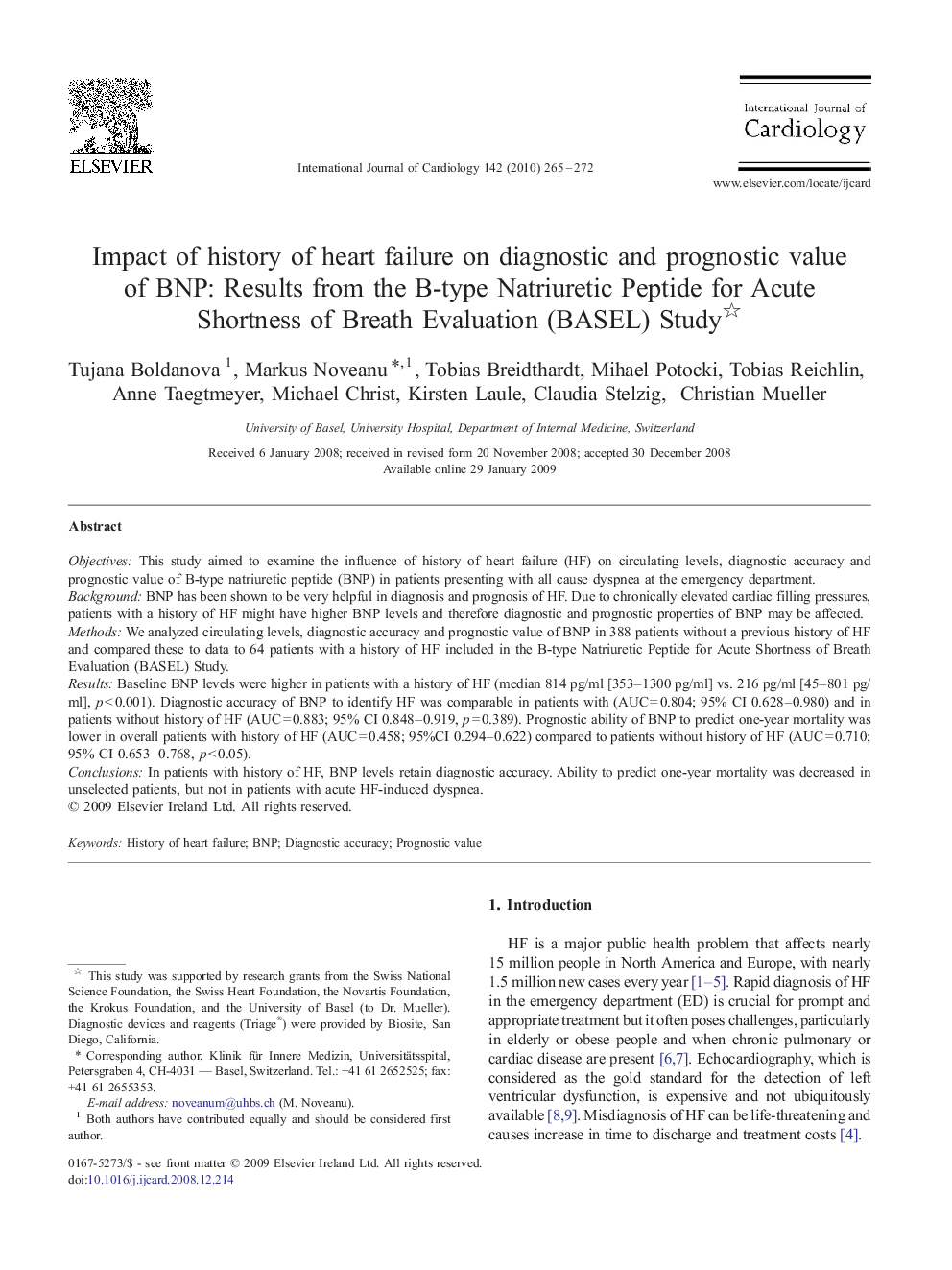| Article ID | Journal | Published Year | Pages | File Type |
|---|---|---|---|---|
| 2930799 | International Journal of Cardiology | 2010 | 8 Pages |
ObjectivesThis study aimed to examine the influence of history of heart failure (HF) on circulating levels, diagnostic accuracy and prognostic value of B-type natriuretic peptide (BNP) in patients presenting with all cause dyspnea at the emergency department.BackgroundBNP has been shown to be very helpful in diagnosis and prognosis of HF. Due to chronically elevated cardiac filling pressures, patients with a history of HF might have higher BNP levels and therefore diagnostic and prognostic properties of BNP may be affected.MethodsWe analyzed circulating levels, diagnostic accuracy and prognostic value of BNP in 388 patients without a previous history of HF and compared these to data to 64 patients with a history of HF included in the B-type Natriuretic Peptide for Acute Shortness of Breath Evaluation (BASEL) Study.ResultsBaseline BNP levels were higher in patients with a history of HF (median 814 pg/ml [353–1300 pg/ml] vs. 216 pg/ml [45–801 pg/ml], p < 0.001). Diagnostic accuracy of BNP to identify HF was comparable in patients with (AUC = 0.804; 95% CI 0.628–0.980) and in patients without history of HF (AUC = 0.883; 95% CI 0.848–0.919, p = 0.389). Prognostic ability of BNP to predict one-year mortality was lower in overall patients with history of HF (AUC = 0.458; 95%CI 0.294–0.622) compared to patients without history of HF (AUC = 0.710; 95% CI 0.653–0.768, p < 0.05).ConclusionsIn patients with history of HF, BNP levels retain diagnostic accuracy. Ability to predict one-year mortality was decreased in unselected patients, but not in patients with acute HF-induced dyspnea.
